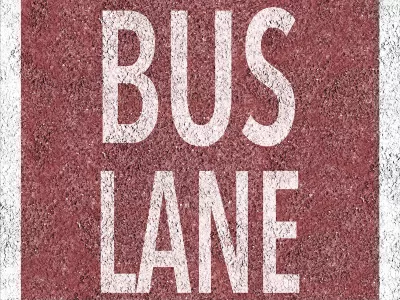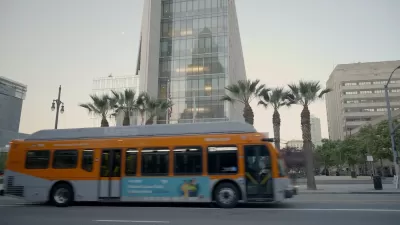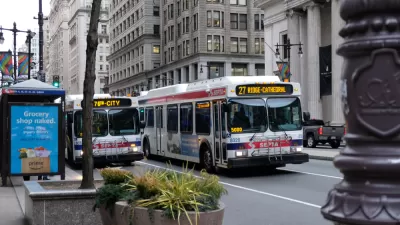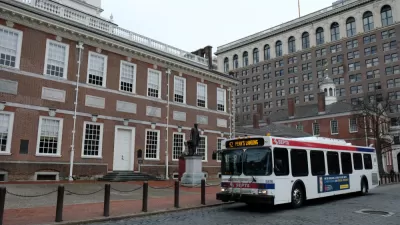A pilot program tested AI-powered cameras that monitored bus-only lanes for parked vehicles.

Windshield-mounted cameras on board buses operated by the Southeastern Pennsylvania Transportation Authority (SEPTA) caught vehicles blocking bus-only lanes 36,392 times in a 70-day period, reports Thomas Fitzgerald in The Philadelphia Inquirer.
The pilot automated enforcement program did not result in any tickets or warnings issued to drivers, but “The test documented the need for and feasibility of a permanent camera enforcement program, agency officials said.
In addition to facilitating faster and more reliable bus service, dedicated bus lanes improve passenger safety and accessibility. “Blockages of bus stops endanger passengers who have to step into traffic to board or disembark, SEPTA says; it is a particular problem for wheelchair users and other people with mobility issues.”
The article notes that the program exempted emergency responders and moving vehicles making legal right turns in designated areas. While supporters of automated enforcement say cameras make enforcement more equitable and prevent unnecessary confrontations with law enforcement, the technology has been criticized for failing to accurately identify vehicles and situations.
SEPTA is asking the city to permit a widespread automated enforcement program. “The agency believes that only a city ordinance would be required to authorize camera enforcement of parking violations. Using automated enforcement for moving violations in bus zones would require state legislation.”
FULL STORY: SEPTA cameras documented more than 36,000 vehicles blocking bus lanes and stops

Alabama: Trump Terminates Settlements for Black Communities Harmed By Raw Sewage
Trump deemed the landmark civil rights agreement “illegal DEI and environmental justice policy.”

Study: Maui’s Plan to Convert Vacation Rentals to Long-Term Housing Could Cause Nearly $1 Billion Economic Loss
The plan would reduce visitor accommodation by 25% resulting in 1,900 jobs lost.

Planetizen Federal Action Tracker
A weekly monitor of how Trump’s orders and actions are impacting planners and planning in America.

Waymo Gets Permission to Map SF’s Market Street
If allowed to operate on the traffic-restricted street, Waymo’s autonomous taxis would have a leg up over ride-hailing competitors — and counter the city’s efforts to grow bike and pedestrian on the thoroughfare.

Parklet Symposium Highlights the Success of Shared Spaces
Parklets got a boost during the Covid-19 pandemic, when the concept was translated to outdoor dining programs that offered restaurants a lifeline during the shutdown.

Federal Homelessness Agency Places Entire Staff on Leave
The U.S. Interagency Council on Homelessness is the only federal agency dedicated to preventing and ending homelessness.
Urban Design for Planners 1: Software Tools
This six-course series explores essential urban design concepts using open source software and equips planners with the tools they need to participate fully in the urban design process.
Planning for Universal Design
Learn the tools for implementing Universal Design in planning regulations.
Caltrans
Smith Gee Studio
Institute for Housing and Urban Development Studies (IHS)
City of Grandview
Harvard GSD Executive Education
Toledo-Lucas County Plan Commissions
Salt Lake City
NYU Wagner Graduate School of Public Service





























